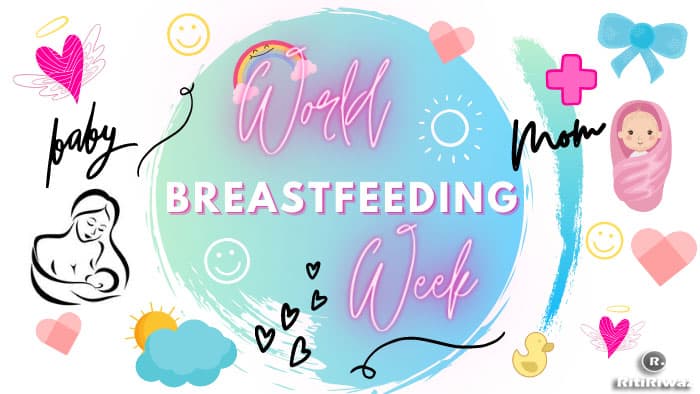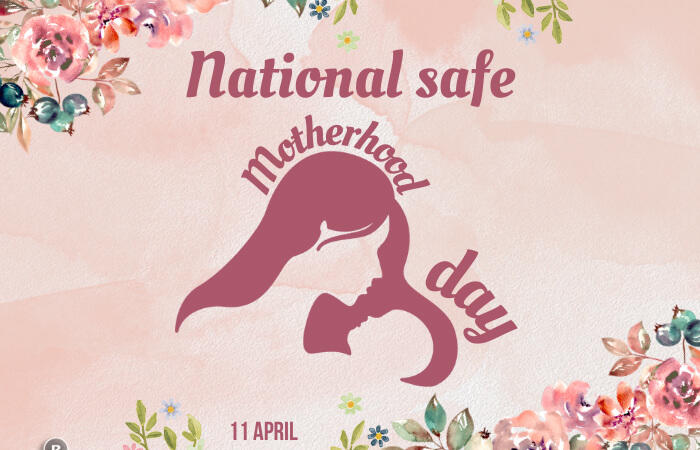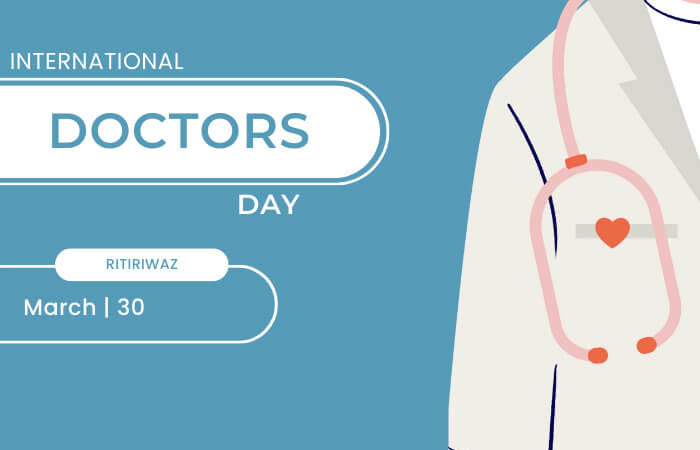World Breastfeeding Week (August 1-7)

World Breastfeeding Week is observed every year from 1 to 7 August to encourage breastfeeding and improve the health of infants around the world. It is celebrated in commemoration of the 1990 Innocenti Declaration. The aim of declaring World Breastfeeding Week was to promote breastfeeding so that infants could be properly nourished and their health improved. The mission includes the World Health Organization, UNICEF, and other organizations.
The theme of World Breastfeeding Week 2023 is “Let’s make breastfeeding and work, work!“
When a new life comes into this world, it is very fragile. He/She needs a complete diet that the baby gets from his mother’s milk. Mother’s milk is nothing less than a boon for the baby. Even after this, many women do not breastfeed their children for fear of a bad figure. Babies who are breastfed long enough have an IQ. Also, breastfeeding women also have many benefits. Also, women who do not breastfeed their babies face many problems.
The immune system of breastfed babies is also strong. Such children are also stronger physically and mentally. Not only does the infant get the necessary nutrition through the breastfeeding process, but it also strengthens her bonding with her mother.
Benefits of breastfeeding
Breastfeeding is beneficial for both mother and baby. The longer the mother breastfeeds the baby, the longer it benefits both. According to the World Health Organization, the infant should only breastfeed for at least six months. After this, supplementary food items with mother’s milk should be given until the age of two years.
Breastfeeding for your baby enables
– Stronger immune system
– Very low risk of infection and allergic diseases
– Very low risk of obesity, BP, diabetes, and certain types of cancer, etc.
– Better physical and mental development
– Better bonding with mother
– Better personality
For Mothers
– Reduced pregnancy weight in a short time
– Minimum blood loss after delivery
– Prevent cancers like breast and ovarian and prevention diseases like diabetes
– Better bonding with baby
– Postpartum depression Avoidance
– Breastfeeding makes bones strong
– Breastfeeding reduces the chances of conceiving.
– Breastfeeding reduces the chances of breast and ovary cancer.
To meet the growing needs of babies at six months of age, complementary foods should be introduced as they continue to breastfeed. Foods for the baby can be specially prepared or modified from family meals.
WHO notes that:
- breastfeeding should not be decreased when starting complementary feeding
- complementary foods should be given with a spoon or cup, not in a bottle
- foods should be clean, safe, and locally available
- ample time is needed for young children to learn to eat solid foods.
UNICEF and WHO, in line with the policy actions advocated, are calling on governments to:
-
INVEST to make skilled breastfeeding counseling available to every woman. Ensuring the availability of skilled breastfeeding counseling to every woman will require increased financing for breastfeeding programs and improved monitoring and implementation of policies, programs, and services.
-
TRAIN health care workers, including midwives and nurses, to deliver skilled breastfeeding counseling to mothers and families.
-
ENSURE that counseling is made available as part of routine health and nutrition services that are easily accessible.
-
PARTNER and collaborate with civil society and health professional associations, building strong collaborative systems for the provision of appropriate counseling.
-
PROTECT health care workers from the influence of the baby food industry.
Suggested Read: Important Days In August






